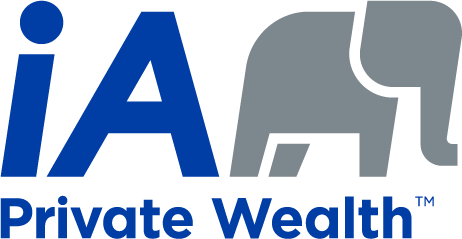Subscribe To Our Newsletter
Subscribe To Our Newsletter
Subscribe to our newsletter and receive free educational articles and videos each month.
Subscribe to our newsletter and receive free educational articles and videos each month.
Main Menu
Financial Foundations: Paying Yourself First
Hi! I’m Nick, and welcome to Financial Foundations. I’m going to cover several concepts of investing that may seem confusing and show you that they’re actually simpler than you think. Let’s talk about paying yourself first.
This principle is simple, but it’s not easy. One of the most important things that you can do early on is to develop the habit of paying yourself first, putting money away and investing it so that you can use it later on in life when you need it. If you develop this habit early on, there’s a much better chance that you’ll continue this as you grow older.
So, how much should you pay to yourself first? Well, 10% of any paycheque, monetary gift, or allowance you receive should be put away and invested for your long-term goals, such as retirement. So, if you make $500 a month working part-time, $50 should be put away and invested for your long-term goals.
Now, if you still live at home with your parents rent-free, you should really consider saving an additional 40% of your total income each month to put towards short-term goals, such as a new car or the downpayment on your own home. So, if you make $500 a month, you should put $50 a month towards your long-term goals and $200 a month towards your short-term goals. And that still leaves you with 50% on your income to spend on things that you want now!
Wait a minute. Why save 50%? That’s half your income! Yes it is, but consider this: when you do move out on your own, you’ll very likely be paying as much as 40% on your future income on various payments and expenses that you need to get by in life. And plus, the 40% that you save now can be used to pay for university one day or that new convertible you have your eye on.
There you go! You now know that paying yourself first is a very powerful habit that you can develop in order to get control of your finances. I’m Nick and this has been Financial Foundations. See you next time!
Financial Foundations: Paying Yourself First
Hi! I’m Nick, and welcome to Financial Foundations. I’m going to cover several concepts of investing that may seem confusing and show you that they’re actually simpler than you think. Let’s talk about paying yourself first.
This principle is simple, but it’s not easy. One of the most important things that you can do early on is to develop the habit of paying yourself first, putting money away and investing it so that you can use it later on in life when you need it. If you develop this habit early on, there’s a much better chance that you’ll continue this as you grow older.
So, how much should you pay to yourself first? Well, 10% of any paycheque, monetary gift, or allowance you receive should be put away and invested for your long-term goals, such as retirement. So, if you make $500 a month working part-time, $50 should be put away and invested for your long-term goals.
Now, if you still live at home with your parents rent-free, you should really consider saving an additional 40% of your total income each month to put towards short-term goals, such as a new car or the downpayment on your own home. So, if you make $500 a month, you should put $50 a month towards your long-term goals and $200 a month towards your short-term goals. And that still leaves you with 50% on your income to spend on things that you want now!
Wait a minute. Why save 50%? That’s half your income! Yes it is, but consider this: when you do move out on your own, you’ll very likely be paying as much as 40% on your future income on various payments and expenses that you need to get by in life. And plus, the 40% that you save now can be used to pay for university one day or that new convertible you have your eye on.
There you go! You now know that paying yourself first is a very powerful habit that you can develop in order to get control of your finances. I’m Nick and this has been Financial Foundations. See you next time!

